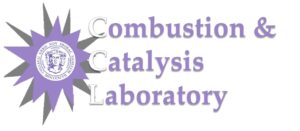 Flavia Albuquerque joined the CCL group within EEC|CCNY in October 2013, through the WTERT-Brazil connection, as a visiting research assistant and is currently working on a project aimed to understand the impact of different types of fuel on pollutant emissions from cement industry.
Flavia Albuquerque joined the CCL group within EEC|CCNY in October 2013, through the WTERT-Brazil connection, as a visiting research assistant and is currently working on a project aimed to understand the impact of different types of fuel on pollutant emissions from cement industry.
Due to high temperatures required in cement kilns, cement industries demand high energy consumption. Most of the energy is still supplied by fossil fuels (mainly coal and petroleum coke), contributing significantly to the production costs, which could be reduced by using alternative fuels with adequate calorific values. In this scenario, refuse derived fuel (RDF) is being widely studied as an alternative fuel and can have a major role in diverting waste currently going to landfill.
Based on the most common fuels in this industry, especially the ones used by those concerned with the environment, a comparison of the pollutants concentrations evolved from the combustion process will be presented, as well as a sensitivity analysis of the influence of the temperatures on emissions and an overall analysis of the kiln and calciner indicating the profile of emissions throughout each unit.
Through experiments with RDF, real data from operating cement plants, Aspen Plus simulation and kinetic modeling based on the GRI mechanism – which was upgraded to consider sulfur and chlorine reactions – this research will provide helpful data in the decision making process in terms of fuel selection for the cement industry.
